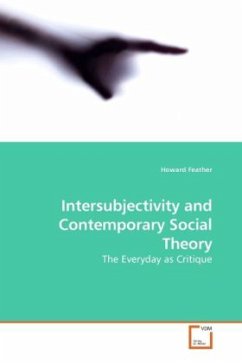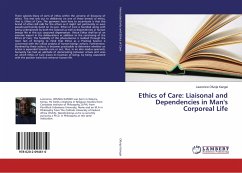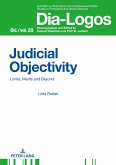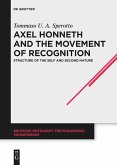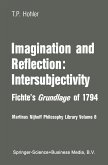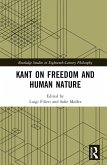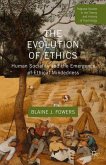This text covers a range of views on intersubjectivity/communication. It sees the scope of intersubjectivity as taking in theories of common sense, ideology, discourse and the philosophy of language as well as the more obvious phenomenological concerns. The author examines the coherence of discursivity in post-modernist and other social constructionist accounts by situating them in relation to the everyday. An alternative model of discursivity is presented which uses Dummett's reading of Frege's work on meaning to criticise the (post)structuralist axiom that language is separate from the world. The counter argument developed is that discursive practices are not purely textual "surfaces", but have a deep structure which unites text and world. Hence meaning is seen as imbricated in the world itself and speaks indexically as an absent presence in our linguistic constructions. The work references semiotics, discourse theory, Marxism, phenomenological sociology, cultural theory, spatiality and historicity, psychoanalysis and themes in the philosophies of language and Spinoza.

